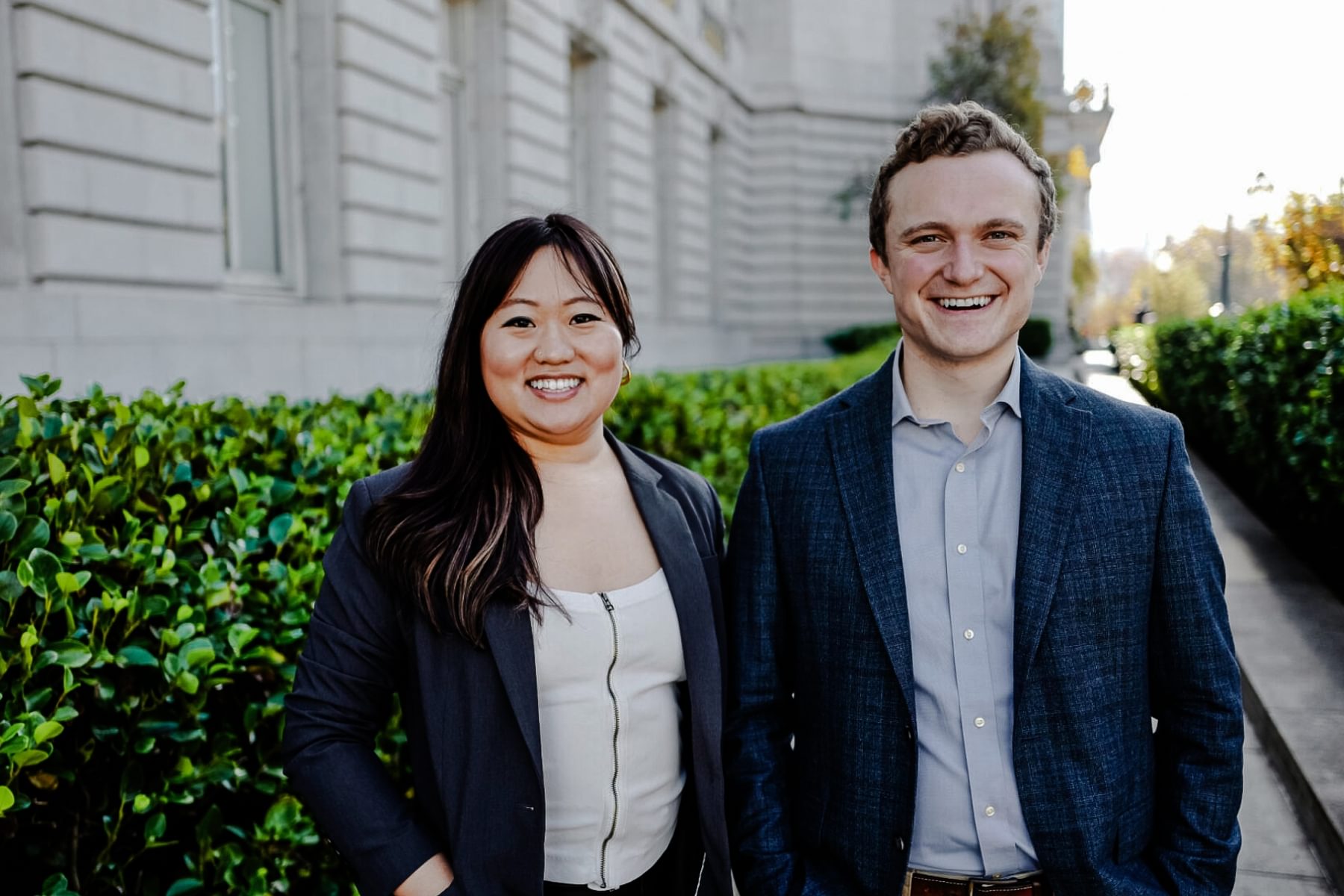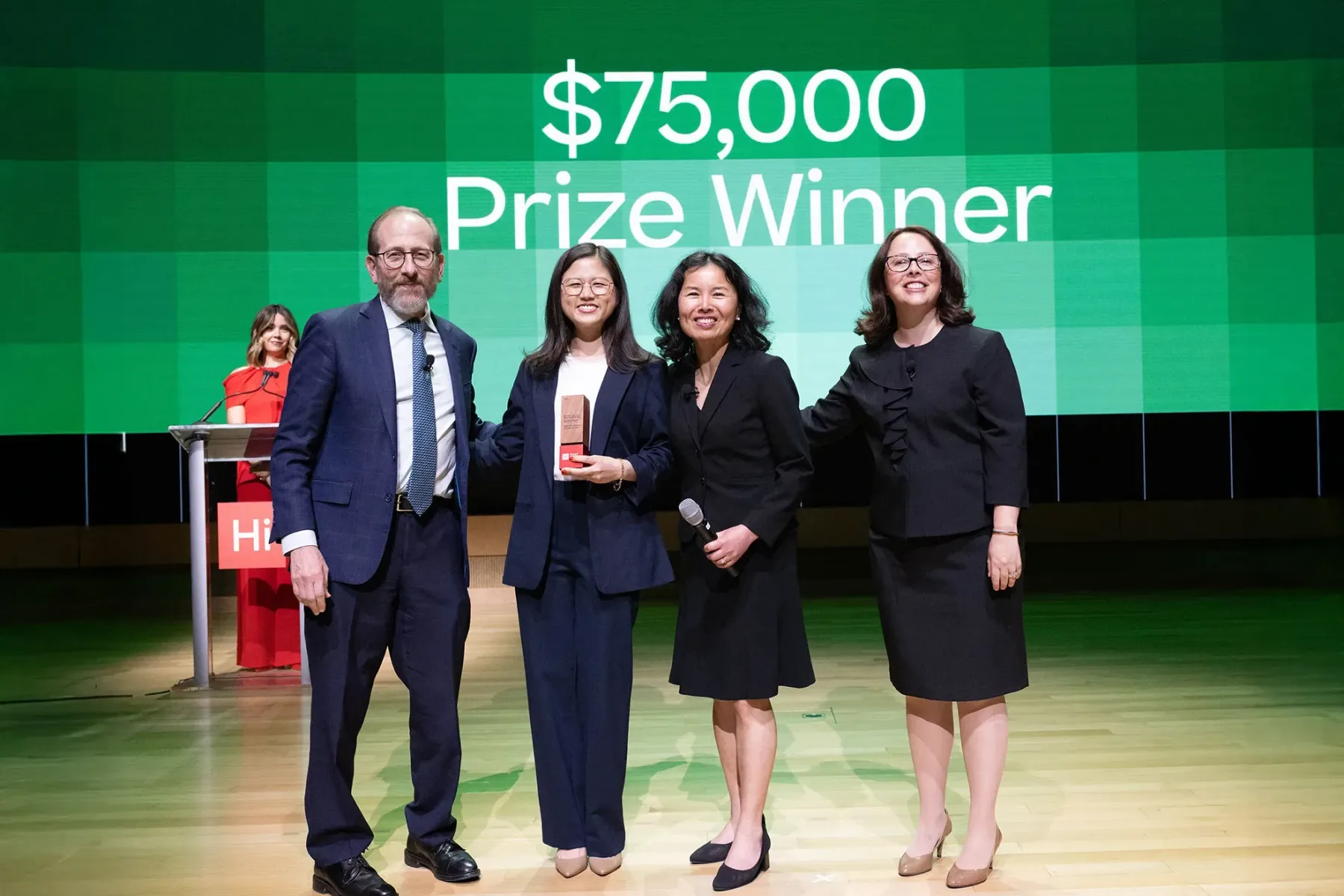If you were looking for Nikita Roy (HES 2023) this summer, you might have found her in the Media Studio at the Harvard Innovation Labs. As a student i-lab member from Harvard Extension School who graduated in May with a master's in data science, she used the space to record her weekly podcast, Newsroom Robots, a timely exploration of the intersection of AI and journalism. Earlier in the summer, I talked with Roy about what she’s learned from hosting a podcast, what’s next for the news industry, and how being a member at the i-lab has enriched her graduate student experience at Harvard.
As founder of The NRI Nation, a news media startup incubated at the i-lab, Roy has twice been a semifinalist in the Harvard President's Innovation Challenge. In this work, she observed that “artificial intelligence is causing unprecedented disruptions and revolutionizing the news industry.” As a data scientist, journalist, and AI expert, Roy launched the Newsroom Robots podcast as a space for the news industry to actively discuss AI. Her first guest on the podcast – Matt Karollian, general manager of Boston.com and platforms at The Boston Globe – further emphasizes the urgency: “Publishers must strategize their approach towards AI. Otherwise, they might find themselves on the losing side of this disruption.”
Increasing relevance and reach
Newsroom Robots is an interview-centric podcast that spotlights newsroom leaders, journalists, and technology experts from renowned media organizations such as The Associated Press, The Boston Globe, Hearst Newspapers, and The Texas Tribune. The discussions go deep into the future of AI and its implications for the evolving news media landscape.
The primary audience is folks in the news industry, but listeners span several sectors, including tech. Episodes cover a broad spectrum, from existential discussions to practical insights, and address topics such as workflow automation, cutting-edge newsroom tools, and preserving journalistic integrity.
Roy points out that the news industry has not seen a lot of innovation in the way news is delivered: While social media channels, like Facebook and Instagram, deliver personalized content, news publishers have yet to follow suit. Sure, newspapers went online, but the digital experience tends to be a one-size-fits-all model. “AI is another tool in the toolkit for us to enhance our reach and be quicker, better, and more personalized,” she says.
It’s less about employing AI to write the stories themselves, she says, but more about “getting relevant stories into the right hands. The language is different. How can we tailor a story by adapting tone, vocabulary, and so on?”
Sparking new ideas
Thanks to a Spark Grant from the Harvard Innovation Labs, Roy hired a sound engineer to help with the technical aspects of audio production and a graphic designer to design the podcast logo. Since launching the podcast in April, she has already released more than 20 episodes and the podcast has consistently charted in the Top Technology podcast category on Apple in over 25 countries.
The success of the podcast has led Roy to expand her venture’s offerings. As a passionate AI enthusiast and data scientist, she now offers AI consultancy and leads generative AI workshops for journalists and media organizations. She’s also developing AI tools for newsrooms, including:
- A GPT-4 tool that generates news quizzes tailored to specific stories – the tool was featured in Northwestern University’s Generative AI in the Newsroom project;
- A WhatsApp chatbot to combat misinformation and disinformation, with support and funding from the International Center for Journalists, as part of their LEAP News Innovation Labs, and another Spark Grant from the Harvard Innovation Labs;
- And a personalized recommendation engine tailored for newsrooms that she and her peers prototyped as part of their graduate program.
Currently, she's collaborating with a group of AI specialists from Harvard and MIT to launch a bot designed to interface with podcasts.
So what’s next for Roy, the news industry, and her venture? “I envision the news media industry embracing AI as a fundamental tool akin to spell check, enhancing efficiency in journalistic endeavors. And I plan to refine generative AI models to align with individual newsrooms' style guidelines and tone of voice, ensuring they produce more precise and relevant content.”
Learning by doing
Harvard students often wonder how time spent at the i-lab will dovetail with their coursework. Being able to apply her classroom learning to her venture “added to my experience tremendously,” Roy says. “In every course, from survey creation to business planning, I was thinking about how I could fit this into my venture. When you’re able to apply the learning, you are so much more motivated, have so many more questions, and can get so much more out of the experience.”
In addition to the Spark grant and encouragement from faculty to use her venture as a test case in her coursework, Roy has also taken advantage of free post-production support through the Lamont Library. “When you combine Harvard’s resources with the i-lab, it’s really powerful. If you dream of it, you can make it happen here at the i-lab.”
Join the Student i-lab
Explore membership to build your idea or venture and to learn how innovation and entrepreneurship can complement your Harvard experience.





